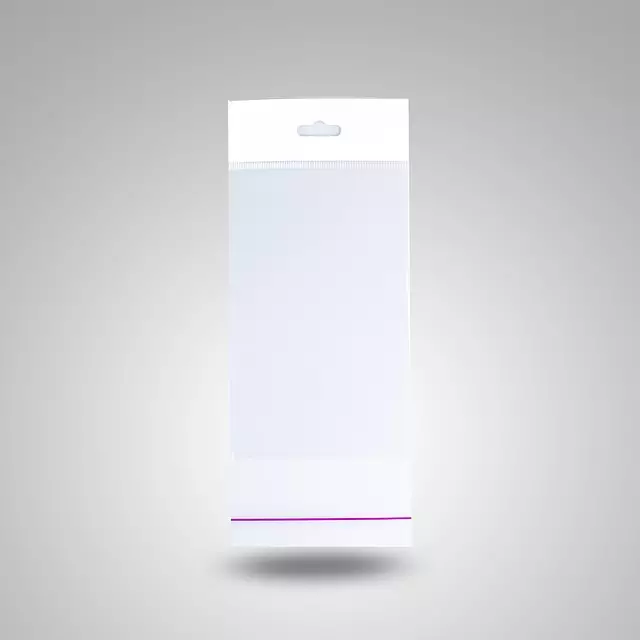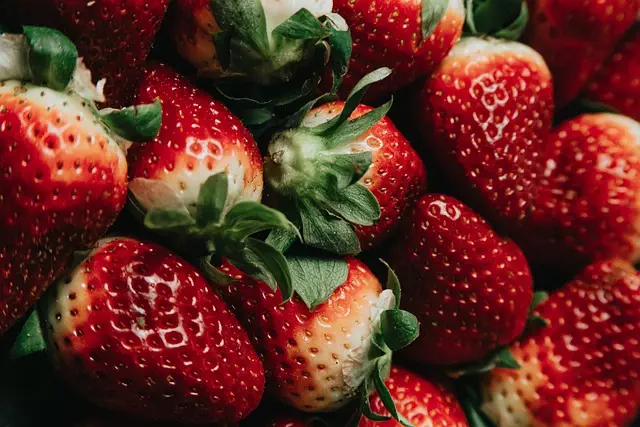The article discusses the rise in demand for sustainable and effective food packaging solutions, particularly within the fresh produce sector, to extend shelf life and promote environmental stewardship. Innovations focus on creating packaging that is both sustainable and effective at preserving product longevity, with an emphasis on biodegradable materials and coatings that serve as eco-friendly alternatives to conventional plastic. Companies are investing in research and development to create custom food packaging tailored to the specific needs of different produce types, aiming to maintain freshness while aligning with consumer preferences for sustainable practices. The integration of smart technology into these packages allows for monitoring and maintaining optimal conditions, further extending shelf life and reducing waste. The collaboration between packaging manufacturers, tech firms, and retailers is driving a shift towards a more sustainable and efficient food ecosystem, enabling consumers to enjoy fresh produce for longer periods with minimal environmental impact. Keywords: Sustainable food packaging solutions, custom food packaging, and food packaging innovation are central to this transition, highlighting the industry’s commitment to meeting evolving market demands through eco-friendly practices.
The evolution of food packaging for fresh produce represents a critical intersection of innovation, sustainability, and consumer preference. This article delves into the transformative landscape of sustainable food packaging solutions that not only extend the shelf life of fruits and vegetables but also prioritize environmental stewardship. We explore the latest in custom food packaging designs, which artfully balance aesthetics with functionality to preserve freshness. From the rise of biodegradable and compostable options to real-world case studies highlighting successful implementations in the produce industry, this article offers a comprehensive look at the strides made in this green revolution. Join us as we examine how these advancements are reshaping the way fresh produce is packaged and consumed globally.
- Innovative Food Packaging Solutions for Fresh Produce: Enhancing Shelf Life and Quality
- The Role of Sustainable Materials in Modern Custom Food Packaging for Fruits and Vegetables
- Custom Food Packaging Designs: Balancing Aesthetics, Functionality, and Preservation for Fresh Produce
- Advancements in Biodegradable and Compostable Options in Food Packaging for Fruits and Vegetables
- Case Studies: Successful Implementation of Eco-Friendly Custom Food Packaging Solutions in the Produce Industry
Innovative Food Packaging Solutions for Fresh Produce: Enhancing Shelf Life and Quality

In recent years, the demand for sustainable food packaging solutions has surged, particularly in the fresh produce sector. Innovative packaging designs are not only enhancing the shelf life of fruits and vegetables but also prioritizing environmental stewardship. These advancements are critical as they address the dual challenge of preserving food quality while minimizing waste. For instance, biodegradable materials and coatings that regulate moisture and gas exchange are becoming increasingly common. They offer a viable alternative to traditional plastic packaging, which often contributes to plastic waste accumulation. Companies are investing in research and development to create custom food packaging options tailored to specific produce types, ensuring optimal protection against environmental factors that could compromise freshness. This bespoke approach not only caters to the unique requirements of different products but also aligns with consumer preferences for sustainable practices without compromising on the quality or longevity of their purchases.
The integration of smart technology into food packaging solutions is another area experiencing rapid growth. These intelligent packages can monitor temperature and humidity levels, providing real-time data that helps maintain optimal conditions for fresh produce. This innovation extends the viable shelf life of perishable items, reducing spoilage and food waste. Additionally, these smart systems enable better supply chain management, ensuring that products reach consumers at their peak quality. The collaboration between packaging manufacturers, technology companies, and retailers is driving this evolution, with a shared goal of creating a more efficient and sustainable food ecosystem. As a result, consumers can enjoy fresh produce for longer periods while contributing to the reduction of environmental impact associated with food packaging waste.
The Role of Sustainable Materials in Modern Custom Food Packaging for Fruits and Vegetables

In the realm of food packaging solutions, the shift towards sustainability is paramount, particularly in the context of fresh produce. Custom food packaging for fruits and vegetables has evolved to prioritize sustainable materials, reflecting a global awareness of environmental impact and resource conservation. These eco-conscious packages are designed not only to protect the integrity of the produce but also to minimize the carbon footprint associated with their production and disposal. Sustainable food packaging options such as biodegradable plastics, recycled paperboard, and plant-based materials are gaining traction as they offer a viable alternative to traditional petroleum-based plastics. These innovative solutions not only align with the growing consumer demand for environmentally friendly products but also ensure that the natural qualities of fresh produce remain intact during transit and storage. The integration of these materials into custom food packaging is a testament to the industry’s commitment to sustainable practices, demonstrating a responsible approach to meeting the needs of both consumers and the planet.
The adoption of sustainable food packaging solutions in the custom food packaging market is driven by stringent regulations, increasing awareness about the environmental impact of packaging waste, and technological advancements. These packages are engineered to offer optimal preservation while reducing resource consumption and emissions. For instance, materials like corn starch-based films and mushroom-based packaging are being used, offering a compostable alternative that decomposes naturally without harmful residues. This shift towards sustainability not only enhances brand image but also positions companies at the forefront of innovation in the food packaging industry. The goal is to create a closed-loop system where packaging materials can be reused, recycled, or safely biodegraded after use, thus contributing to a circular economy and reducing the environmental burden of food packaging waste.
Custom Food Packaging Designs: Balancing Aesthetics, Functionality, and Preservation for Fresh Produce

In the realm of fresh produce, the demand for food packaging solutions that are both aesthetically pleasing and functional is paramount. Custom food packaging designs play a pivotal role in ensuring that these products reach consumers in optimal condition while also presenting an appealing visual first impression. These packages must not only safeguard against environmental factors but also highlight the freshness and quality of the contents. The integration of sustainable food packaging materials has become increasingly important, with consumers and businesses alike seeking environmentally responsible options. Innovative designs employing biodegradable or recycled materials are gaining traction as they offer a balance between preservation and ecological consciousness. These solutions not only protect produce from bruising and dehydration but also align with the growing trend towards sustainability, addressing consumer concerns about food waste and plastic pollution.
Furthermore, the best custom food packaging designs are those that consider the unique characteristics of each type of fresh produce. For example, fruits and vegetables with different moisture levels require tailored packaging solutions to prevent spoilage or dehydration. The design must account for factors such as gas exchange, humidity control, and temperature regulation to maintain the quality of the product throughout its shelf life. By leveraging advanced technologies like modified atmosphere packaging (MAP), designers can create environments within the package that extend the freshness of produce, reducing waste and enhancing consumer satisfaction. This harmonious blend of aesthetics, functionality, and preservation in custom food packaging designs is a testament to the ingenuity of the industry, continually adapting to meet the dynamic needs of modern consumers and the environment.
Advancements in Biodegradable and Compostable Options in Food Packaging for Fruits and Vegetables

Innovations in food packaging for fresh produce are pivoting towards sustainability, with a significant focus on biodegradable and compostable options. These advancements address the environmental concerns associated with traditional packaging materials, which often end up as non-biodegradable waste. The shift is driven by the growing demand for sustainable food packaging solutions that align with consumer values of eco-friendliness and conservation. Custom food packaging designs now incorporate plant-based polymers, bio-composites, and other natural materials that break down under composting conditions, leaving minimal environmental footprint. These new-age materials not only ensure the integrity and freshness of the produce during transit but also offer a responsible disposal alternative post-consumption. The adoption of such materials is part of a broader movement towards a circular economy within the food industry, where waste is minimized, and resources are reused in a closed-loop system, thus promoting a healthier planet for future generations.
Case Studies: Successful Implementation of Eco-Friendly Custom Food Packaging Solutions in the Produce Industry

In recent years, the produce industry has seen a significant shift towards more sustainable food packaging solutions. One notable case study is that of a leading organic fruit and vegetable supplier who transitioned to custom eco-friendly packaging. This supplier recognized the environmental impact of traditional packaging materials and sought to mitigate this by adopting biodegradable and compostable options made from plant-based materials. The result was a marked reduction in carbon footprint, as well as a strong positive response from environmentally conscious consumers. The new packaging not only aligned with the company’s sustainability goals but also differentiated their products in the competitive market. Another example is a major grocer who partnered with a packaging innovator to develop a line of reusable and recyclable custom food packaging for their fresh produce section. This initiative not only promoted sustainable practices among consumers but also significantly cut down waste associated with disposable packaging. The success of these implementations underscores the importance of sustainable food packaging solutions in the produce industry, demonstrating that with thoughtful design and strategic partnerships, custom packaging can be both planet-friendly and effective in protecting fresh produce from farm to fork. These case studies serve as a testament to the industry’s capability to adapt and innovate, ensuring that the demand for fresh produce is met without compromising the environment.


